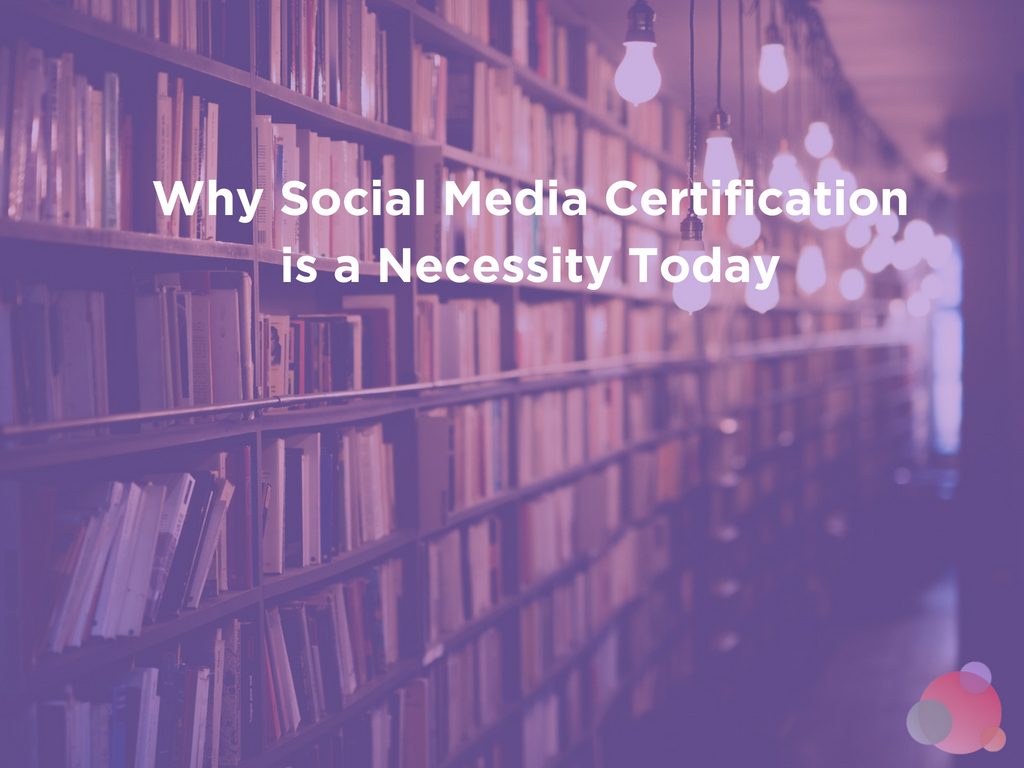 My long agency career means I’ve hired lots, probably hundreds, of entry-level staff.
My long agency career means I’ve hired lots, probably hundreds, of entry-level staff.
But to this day, I find it difficult to assess what someone knows about social media.
I tend to shortlist candidates who possess a degree from a ‘good’ university, including communications, journalism, or business graduates (although I’ve seen some degrees in English and linguistics, too).
The more desirable candidates will also have a PR or marketing diploma, or a certificate from a community college.
Almost all candidates claim to have knowledge and experience of social media and, given the demographic, you’d expect them to.
In truth though, it’s nearly impossible to tell how much someone actually knows until they are in and on the job.
And all too often, these young professionals come up wanting when it comes to social media skills.
Social Media Certification Programs
This is one major reason why I am a big proponent of social media certification programs. Industry programs fit the bill, too.
The resumes I see that have Google AdWords, Facebook Blueprint, Hootsuite Academy or similar accreditation are much more likely to make the first cut.
The same standard applies to those applying for more senior roles.
It’s difficult to assess some candidates who are more than 10 or 15 years into their careers because, despite their experience, you just don’t know how hands-on they have been in social media.
In fact, I don’t see social media certification—not to mention anything internet-related—on resumes of many candidates regardless of what stage in their careers.
And I wonder, why not? Is it because training is offered almost exclusively online?
Online Learning Success
Consider the findings of a 2017 IPSOS survey carried out on behalf of eCampus Ontario, which identified four barriers to online learning success:
- Motivation: Around 37 percent of survey respondents said online education made them feel anxious.
- Ability: Only half said they felt able to pursue online education.
- Context: And 42 percent said they felt work, family, and social life would make taking online courses challenging.
- Social: Half said they would choose traditional training environments over online learning because of the stigma associated with it.
These numbers tell a somewhat depressing story with half of the candidates ruling out online training before giving it a try.
For the remaining half, those who are willing to consider social media certification programs, there are other challenges to be met.
Which Online Social Media Course?
Google “online social media courses.”
What do you get? You get 222 million mentions returned.
Some courses are free. Some cost thousands of dollars. And colleges, universities, and other institutions offer some.
Still, others come from social media agencies, bloggers, and eMarketers.
(Spin Sucks, for example, offers content creation and blogging masterclasses along with courses on the PESO model.)
How Do You Choose?
It depends on which particular skills you want to develop, but I feel it’s important to start with the basics.
As a recruiter, I look for certifications from those technology companies that drive the internet (think Google, Facebook, Twitter, LinkedIn, and Hootsuite).
When I see these on someone’s resume, I think, this person is probably current and knows what they are doing.
The good news is most of the training and education for these certifications is freely available online.
However, not everyone is great at independent study.
People learn in different ways, and online training doesn’t usually support varied learning styles.
Some people can whip through an online course in a day and then write and pass the test.
Others may need to take a slower pace, do supplementary research, projects, and experiments.
And yet others learn better in a group setting which is supportive and collaborative.
What’s Your Learning Style?
In Learning Styles and Online Education, a joint study conducted by the U.S. Coast Guard Academy and Marshall University in West Virginia, researchers concluded an individual’s learning style affects their training success.
For example:
- Auditory learners need ample time to process information. They tend to need information repeated and often require rephrasing and request additional information to understand new material fully. Online courses designed around lectures, discussion, and independent study will work for this learning style.
- Visual learners prefer to understand an overall concept before trying to learn about its parts. Images and illustrations help them make sense of something new. Online courses that include demonstrations, role-playing and site visits appeal to this learning style.
- Kinesthetic learners learn by doing. They want to be active participants to understand new topics. Internships, field trips, games, and demonstrations would be central to this e-learning experience.
- Read/write learners prefer to take notes, make lists, and read texts. Online courses that emphasize creativity and open-ended questions with lots of visual formats and modeling appeal to this learner.
A Blended Approach
Few online courses cater to all learning styles. They just can’t.
It would mean providing content in multiple formats and allowing for collaborative interaction.
It would also mean providing practical exercises and participating in group work and discussions.
These features are not easily accommodated with social media certification online course curricula, which tend towards independent, solitary study.
So here is my question to you, dear reader. Why not take a blended approach to address these challenges?
By forming learning groups to work through the online curriculum together, we professional communicators can address the limitations of online learning and make the experience supportive, interactive, practical, and collaborative.
Having an experienced, skilled social media expert to lead the group through online materials rounds out the experience by providing real-world context.
This approach allows for questions, discussions, and expansions which aren’t possible from a typical online course.